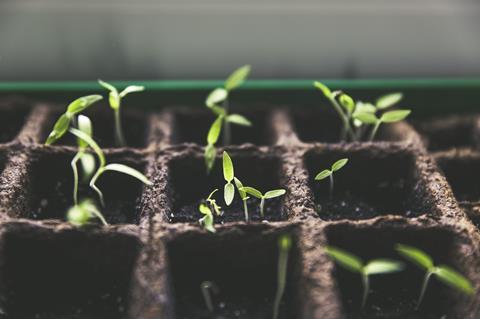Scientists have identified a gene in a plant-growth promoting rhizobacterium that can be manipulated to allow the bacterium to thrive in acid soils.
The study by the team led by Professor Yanbin Guo at China Agricultural University in Beijing, ‘Disruption of the Sensor Kinase phoQ Gene Decreases Acid Resistance in Plant Growth-promoting Rhizobacterium Rahnella aquatilis HX2’, has been published in the Journal of Applied Microbiology, an Applied Microbiology International publication.

Corresponding author Professor Yanbin Guo of the Department of Environmental Science and Engineering says that soil acidity remains a major limiting factor in crop productivity with 40-50% of the world’s arable land acidic. Low pH impacts plant growth due to aluminium toxicity, phosphorus deficiency, and reduced biodiversity.
A new strategy in the field of agroecosystems research is to apply plant growth-promoting rhizobacteria (PGPR) in abiotic stress to improve plant growth, but the mechanism of PGPR survival and the microbe-plant interaction in acidic soils remains unclear.
Rahnella aquatilis strain HX2 is a promising PGPR that is resistant to multi-stress conditions. Research has revealed that the two-component system PhoP/PhoQ positively regulates the acid resistance of strain HX2 in both cultural medium and acidic natural soils.
Furthermore, the quantitative PCR assay confirmed that the acid resistance genes were regulated by the PhoP/PhoQ system.
Plant-microbe interaction
“The survival of PGPR is a prerequisite for microbial interaction with plants, but the plant-microbe interaction in acidic soils remains unclear,” Professor Guo says.
“We are trying to identify the genetic determinants of the acid resistance of PGPR, and offer the guidance for manipulating and promoting the survival and performance of PGPR in the acidic environments.”
The team firstly constructed the phoQ in-frame deletion mutant and complementary strains to investigate the survival and biocontrol ability of R. aquatilis strain HX2. Transcriptional analysis of six genes involved in deduced acid-resistance was also understood.
“Compared to the wild type, the phoQ mutant exhibited the increased sensitivity to acidic conditions (pH 4.0) in a chemically defined medium and in an acidic natural soil (pH 5.7),” Professor Guo says.
“The phoQ mutant also exhibited increased swimming motility under acidic conditions. Three acid resistance genes (add, cfa, and fur) were downregulated significantly, whereas the chaperone encoding gene (dnak) was upregulated when the phoQ mutant was exposed to acid stress.”
The genetic determinant (phoQ) of acid resistance of strain HX2 identified in this study could be used to manipulate other PGPR or plant, Professor Guo says.
“The PhoP-PhoQ system can support the survival of HX2 in acidic soil with pH 5.7. Modification of the PhoP-PhoQ system in PGPR or in the plant would improve PGPR and plant survival in acidic environmental conditions,” he says.
This project was led by Professor Yanbin Guo of China Agricultural University, and supported by the Special Fund for Key Science & Technology Program in Xinjiang of China and the Special Fund for Key Science & Technology Program in Yunnan of China.
‘Disruption of the Sensor Kinase phoQ Gene Decreases Acid Resistance in Plant Growth-promoting Rhizobacterium Rahnella aquatilis HX2’, is published in the Journal of Applied Microbiology.







No comments yet